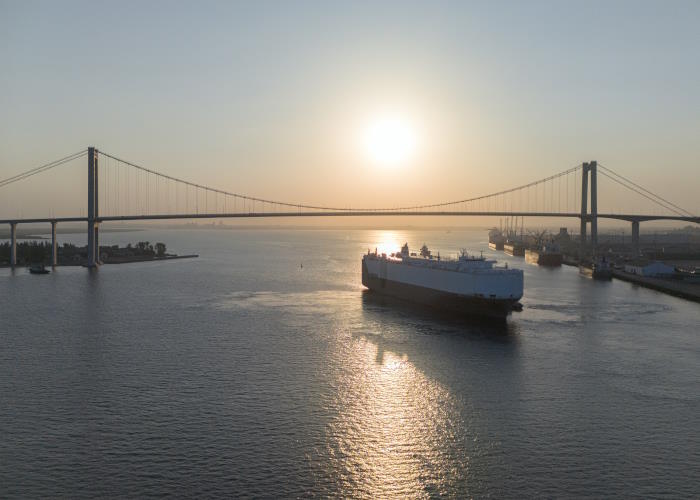
DP World, one of the world’s leading port logistics companies, has unveiled a new maritime service, “Atlas,” connecting Moroccan ports in Agadir and Casablanca with London Gateway in the UK and Antwerp Gateway in Belgium.
The initiative aims to reduce export transit times to the UK by nearly two days, while ensuring fresh produce reaches European markets in optimal condition.
The service underscores Morocco’s ambition to strengthen its role as a logistics hub, particularly for agricultural exports.
By integrating sustainable multimodal solutions, DP World seeks to streamline the supply chain from farm to retailer, combining maritime transport, port handling, warehousing, and land distribution into a single, efficient operation.
“The Atlas service addresses the time-sensitive nature of the fruit and vegetable sector, allowing Moroccan producers to deliver their products to Europe in peak freshness,” officials said.
Weekly departures from Agadir, Morocco’s main early vegetable-producing region, are expected to provide reliable and regular logistics flows, meeting Europe’s growing demand for Maghreb-grown fresh products.
Beyond speed and efficiency, the service also offers environmental benefits. Direct shipping routes reduce reliance on road transport via Spain and France, lowering carbon emissions and supporting Europe’s sustainability goals. This aligns with a broader trend in which logistics is becoming a strategic lever to enhance competitiveness in agricultural supply chains.
Morocco’s geographic position at the gateway to Europe, combined with its links to sub-Saharan Africa, makes the kingdom an increasingly attractive regional logistics hub. Agadir’s state-of-the-art perishable goods infrastructure and Casablanca’s central logistical network together ensure that a wide range of products can be efficiently handled and exported.
DP World has implemented similar multimodal initiatives globally, including connecting agricultural zones to ports in India, Latin America, and East Africa, reducing costs, post-harvest losses, and improving access to international markets.
Although “Atlas” initially targets fruits and vegetables, its success could pave the way for transporting fish, textiles, and manufactured goods, enhancing Morocco’s export capacity and encouraging investment in specialized, traceable, and temperature-controlled logistics services.
By offering faster, greener, and more reliable transport, the Atlas service represents a significant step in Morocco’s strategy to become a central hub linking Africa and Europe.



